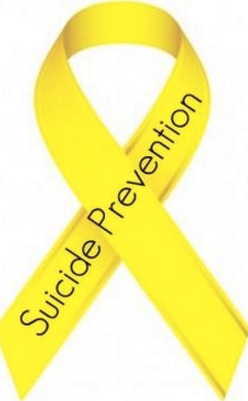Suicide rates are accelerating | Study compares age groups

 Suicidality in young patients with depression is more severe than it is in older patients with depression…
Suicidality in young patients with depression is more severe than it is in older patients with depression…
…according to a study presented at the American Psychiatric Association’s 2016 Annual Meeting.
In addition, suicidality is not associated with depression severity in younger patients.
“These data suggest that close attention should be paid to young people, even in mild or moderate depression,” wrote lead author Tae-Youn Jun, MD, PhD, and coauthor Ho-Jun Seo, MD, PhD, of the Catholic University of Korea.
The study included 1,003 patients from 18 hospitals with moderate to severe depression divided into 2 age groups: patients younger than 25 and patients age 25 and older. The average age of the younger group, which comprised 10.3% of participants, was 20. The average age of the older group was 51.
Regardless of the severity of depression, participants in the younger group were more likely to report significant suicidal ideation than participants in the older group (79.6% vs. 53.7%), researchers found. Younger patients were also more likely to have had a history of suicide attempt than older patients were (43.7% vs. 19.4%).
Suicidal ideation in younger patients was significantly linked with a history of suicide attempts and recurrent depressive episodes, according to the study. In contrast to patients in the older group, an increase in depression severity was not a predictor of significant suicidal ideation for younger patients.
The CDC recently reported that suicide rates are accelerating in the United States. After a period of nearly consistent decline from 1986 to 1999, the suicide rate spiked 24% between 1999 and 2014. Between 1999 and 2006, the rate grew an average 1% annually, according to CDC data. Between 2006 and 2014, it increased twice as quickly, at an average rate of 2% a year.
Between 1999 and 2006, the rate grew an average 1% annually, according to CDC data. Between 2006 and 2014, it increased twice as quickly, at an average rate of 2% a year.
Speaking at the APA meeting, CDC Director Thomas R. Frieden said reducing the suicide rate must be a priority for public health and psychiatric officials. Communities need comprensive approaches with accountability measures, and should look for ways to reduce access to lethal means, he said.
"It's one of the few causes of death that, like opiate overdoses, is increasing," he said. "This is a very challenging issue to work on. It's complex."


